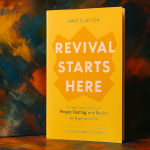Intolerance is the Issue Under Every Other Issue
Perceived intolerance among Christians ran through virtually every comment we heard. In fact, our findings both in the phone survey and face-to-face focus groups reflect not a list of random objections to Christianity but rather a single problem playing out in multiple arenas that frame the blogs for this series. This point is critical and cannot be overstated. There is one cultural war, and that war is intolerance. The intolerance war is fought in various arenas, but every time the battle is over the issue of tolerance. People cannot agree about anything unless they first agree about one thing – intolerance. Non-Christians see intolerant in our approach to:
- Sexuality: Christians disapprove of fornication, abortion, and same-sex marriage.
- Politics: Christians use politics to inflict bigotry on others.
- Morality: Christians are critical of others yet overlook their own hypocrisy.
- Religion: Christians are intolerant of other beliefs when they say that Jesus is the only way to salvation.
- Equality: Christians suppress the rights of women when they argue from the Bible that a husband should lead the family and that only men should be pastors.
- Authority: Christians who regard Scripture as true and other teachings as false are xenophobic.
Money: Christian individuals and ministries are driven by greed and intolerance of the poor and their poverty. - Purpose: Christians dismiss people who claim to find meaning apart from their own book, leader, and community.
If this list uncovered by our research looks familiar, it’s because these are the issues that explode in the news over and over and over…
Black, White and Gray
Nones and Dones feel that Christian intolerance is like a death grip on black and white ideas in a world gone gray. Listen to how Tony from Boston sees the problem:
“To me it’s a religion that is absolute. There’s not gray areas with Evangelical Christians. It’s black or white. It’s correct or wrong. It’s interesting listening to all of us say what the middle ground is, even in our wording of things. We weren’t thinking middle grounds of things. We were judgmental of them. You can describe a group and not be judgmental with them. Maybe I’m doing it myself by saying black and white, but that’s, to me, just a statement of fact that’s neutral. Some people may be fine with being black and white, some people prefer shades of gray. It doesn’t make one thing more correct than the other.”
What we hear is an assertion that we should abandon our black and white thinking in favor of more tolerant gray—which is inevitably presented as a more nuanced, intelligent, and loving way of seeing the world. Christians should stop thinking in terms of right and wrong in favor of blending all possible choices and actions into a vast pool of acceptable options.
But pay careful attention to how Tony argues that people with gray minds are right and people with black and white minds are wrong. How does he do it? He falls back on black and white thinking to assert that black and white thinking is wrong and that gray thinking is right. He has to lay his black and white cards on the table. Tony goes on to say:
“Personally, in my life, I don’t have room for Evangelical beliefs. I’d like to say it’s because I’m logical, but that in itself is a folly because according to Evangelical logic, they’re still coming into their own beliefs. Logic is all interpreted. You can look at the same set of data and come up with different logical results. I have faith entirely in myself. I don’t have the same beliefs, but to give it to somebody else, just have an open mind. If something really feels wrong with it, then back out. When I said dump it, that’s my black and white response.”
People who claim to be gray thinkers are anything but consistent. They use black and white thinking when it is to their advantage, like Tony. As much as people claim to live in a world of gray, it is as if they shuttle between two homes. They move into a black and white home to judge the behavior of others. They relocate to their gray home to justify their own behavior. They might like their gray home better, but they head to their black and white home when it benefits them.
















